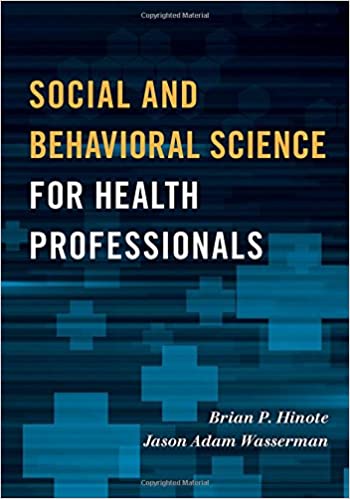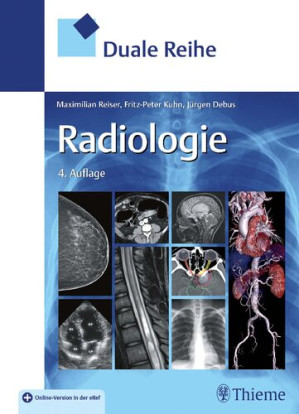Social and Behavioral Science for Health Professionals examines various social and behavioral factors that affect health and illness, with a particular focus on how these phenomena inform clinical practice. The book introduces interdisciplinary insights from fields like sociology, psychology, and epidemiology to elucidate important and often problematic features of patient care routinely confronting physicians, nurses, and other allied health practitioners. Each chapter provides clear learning objectives and is organized around core concepts to facilitate clinicians’ abilities to think in new and expanded ways about health and illness, as well as patient and professional interactions. The content explores the implications of a shifting epidemiological landscape; the critical roles of social factors as fundamental causes of health and disease; health disparities; the medicalization process and resulting changes in diagnostic patterns and expectations of practitioners; understandings of the illness experience of patients; interpersonal and interprofessional collaboration; clinical bioethics and the social psychology of ethical decision-making; and the significance of health system design and health policy. As a result, the book represents an important resource for improving patient care, particularly at a time when health is more intricately linked to social and behavioral conditions than ever before.
Special Features of Social and Behavioral Science for Health Professionals:
- Presents a genuinely interdisciplinary approach to various social and behavioral aspects of health.
- Emphasizes the clinical implications of various social and behavioral science insights for health, illness, and patient care.
- Addresses multiple dimensions of health and disease, from social conditions to disease epidemiology to the social psychology of illness experience and interpersonal communication.
- Each chapter provides clear learning objectives that emphasize critical content.
- Responds to the changing expectations in medical, nursing, and allied health education, which increasingly require training in the social and behavioral aspects of health and illness.
- The Instructor’s Manual includes a detailed grid that maps each chapter to the core competencies of various health care fields including medicine, nursing, physician assistant, dentistry, and more. A sample course syllabus is also included.
Specific health professions included in the core competencies grid are:
-
- LCME (allopathic medicine)
- AAMC (allopathic medicine)
- AACOM (osteopathic medicine)
- ADEA (dentistry)
- CODA (dentistry)
- ARC-PA (physician assistants)
- AACN (nursing)
- ACPE (pharmacy)
- CCE (chiropractic)
- Focusky and PowerPoint® presentations are available for each chapter. Focusky is a software package that allows instructors to provide dynamic presentations in class, and the authors have provided one presentation for each chapter.
چکیده فارسی
علوم اجتماعی و رفتاری برای متخصصان بهداشت، عوامل اجتماعی و رفتاری مختلفی را که بر سلامت و بیماری تأثیر میگذارند، با تمرکز ویژه بر نحوه اطلاعرسانی این پدیدهها بر عملکرد بالینی بررسی میکند. این کتاب بینشهای بینرشتهای را از حوزههایی مانند جامعهشناسی، روانشناسی، و اپیدمیولوژی معرفی میکند تا ویژگیهای مهم و اغلب مشکلساز مراقبت از بیمار را که بهطور معمول با پزشکان، پرستاران و سایر پزشکان مرتبط با سلامت مواجه میشود، توضیح دهد. هر فصل اهداف یادگیری روشنی را ارائه میکند و حول مفاهیم اصلی سازماندهی شده است تا توانایی پزشکان را در تفکر به روشهای جدید و گسترده درباره سلامت و بیماری، و همچنین تعاملات بیمار و حرفهای تسهیل کند. محتوا پیامدهای تغییر چشمانداز اپیدمیولوژیک را بررسی میکند. نقش حیاتی عوامل اجتماعی به عنوان علل اساسی سلامت و بیماری؛ نابرابری های بهداشتی؛ فرآیند پزشکی شدن و تغییرات ناشی از آن در الگوهای تشخیصی و انتظارات پزشکان؛ درک تجربه بیماری بیماران؛ همکاری بین فردی و بین حرفه ای؛ اخلاق زیستی بالینی و روانشناسی اجتماعی تصمیم گیری اخلاقی؛ و اهمیت طراحی نظام سلامت و خط مشی سلامت. در نتیجه، این کتاب منبع مهمی برای بهبود مراقبت از بیمار است، به ویژه در زمانی که سلامت بیش از هر زمان دیگری با شرایط اجتماعی و رفتاری مرتبط است.
ویژگیهای ویژه علوم اجتماعی و رفتاری برای متخصصان سلامت:
- رویکردی بین رشته ای واقعی را به جنبه های مختلف اجتماعی و رفتاری سلامت ارائه می دهد.
- بر پیامدهای بالینی بینش های مختلف علوم اجتماعی و رفتاری برای سلامت، بیماری و مراقبت از بیمار تأکید می کند.
- به ابعاد متعدد سلامت و بیماری، از شرایط اجتماعی گرفته تا اپیدمیولوژی بیماری تا روانشناسی اجتماعی تجربه بیماری و ارتباطات بین فردی می پردازد.
- هر فصل اهداف یادگیری واضحی را ارائه میکند که بر محتوای انتقادی تأکید دارد.
- به تغییر انتظارات در آموزش پزشکی، پرستاری و مرتبط با سلامت پاسخ می دهد، که به طور فزاینده ای نیاز به آموزش در جنبه های اجتماعی و رفتاری سلامت و بیماری دارد.
- راهنمای مربی شامل یک جدول دقیق است که هر فصل را به صلاحیت های اصلی حوزه های مختلف مراقبت های بهداشتی از جمله پزشکی، پرستاری، دستیار پزشک، دندانپزشکی و موارد دیگر ترسیم می کند. نمونه درسی درسی نیز گنجانده شده است.
حرفه های بهداشتی خاص که در شبکه شایستگی های اصلی گنجانده شده اند عبارتند از:
-
- LCME (داروی آلوپاتیک)
- AAMC (داروی آلوپاتیک)
- AACOM (داروی استئوپاتی)
- ADEA (دندانپزشکی)
- CODA (دندانپزشکی)
- ARC-PA (دستیاران پزشک)
- AACN (پرستاری)
- ACPE (داروخانه)
- CCE (کایروپراکتیک)
- ارائه های Focusky و PowerPoint® برای هر فصل در دسترس هستند. Focusky یک بسته نرم افزاری است که به مربیان امکان می دهد ارائه های پویا را در کلاس ارائه دهند و نویسندگان یک ارائه برای هر فصل ارائه کرده اند.
ادامه ...
بستن ...
- ISBN-10 : 1442249706
- ISBN-13 : 978-1442249707
ادامه ...
بستن ...










